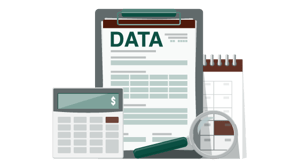How to Buy Your First Home like an Investor
Owner Occupant Strategies
The 3 strategies to leverage your primary residence to jump start your real estate portfolio:
-
Stepping Stone - Buying a starter home, building equity and increasing value (utilizing the equity growth trifecta described below), then selling this home and using the proceeds to step up into a larger home.
-
BRRRR Ownership - BRRRR Ownership is short for Buy, Reside, Relocate, Rent, Repeat. In other words, buy a home with the intention of keeping it for a rental long term. You could Reside in the property for as little as 1 year, but could stay as long as you wanted or needed to in order to save up for your next purchase. BRRRR Ownership refers specifically to living in the property, not to be confused with BRRRR Investing, which is similar, except you never live in the property itself.
-
House Hack - House hacking is when you create an income stream from the property you are living in. The most aggressive house hack is purchasing in a 4plex, living in 1 unit and renting the other 3. Other options include: renting one or more roommates, purchasing a 2 or 3 unit property, living in 1 unit and renting the other units traditionally or on AirBnB.
The key component any of these 3 options is your intention going into the purchase. What is the plan for the property, for your real estate acquisition goals, how will you convert this liability to an asset?
Most Aggressive House Hack Strategy
This method is not for everyone, but those who are determined and have some flexibility in where they live, this strategy allows investors to build their portfolios with little to no money down.
Using FHA or other low down payment programs, investors qualify for an owner occupant loan. Most of these loan programs allow you to purchase up to a 4 unit property, the only catch is you must live in one of the units for at least 12 months. You can repeat this process yearly, up to 10 properties with most loan programs available.
-
Buy a small multi-family property with a low down payment such as 5%. On a $600,000 property, this is $30,000 down payment.
-
Move in & Rent the other unit(s).
-
Live with a lower monthly housing payment.
-
Save up another down payment.
-
Repeat yearly for 10 years+ keep the original property as rental.
-
Own 40 units in 10 years = Retire Early!
How to Identify a Good Deal
Real estate investors see real estate differently than the average real estate buyer. Investors identify potential. Investors see opportunities to add value. Investors are numbers driven.
Deal Potential and Value Add Opportunities
Identifying potential is seeing through what is there and identifying what could be there. When you are looking a deal, what opportunities are available to increase value, immediately or over the long term? Sometimes the opportunity to add value is obvious through major renovations; Sometimes the opportunity is less obvious, what if you added a DADU for a second stream of income? What if you converted a 4 bedroom house into a 2 unit duplex?
Potential is also available in specific areas or neighborhoods that are ripe for growth, immediately or over the long term. What is the zoning of the lot? What changes will occur in the area in the next 5-15 years? You identify real estate deal potential through observing growth trends, but you also make it your business to know urban growth plans, zoning changes, and city plans to build schools, commercial centers, parks, and major roads.
Numbers Driven
Rationality wins over emotions when it comes to a real estate deal. Your purchase decisions are based on facts, data, and numbers. Your acquisition strategy dictates what facts and data are most relevant today and the immediate future, but the most common are:
-
Recent sold comparables - What price / sqft did similar properties within a mile or less sell for in the past 6 months?
-
Market Rent - What are similar properties currently ren
 ting for? How much has the market rent fluctuated in the past 12 months?
ting for? How much has the market rent fluctuated in the past 12 months? -
Growth Projections - What are the growth projections for the area? What economic forces are in play?
-
Construction Costs - How much will your planned renovations or improvements cost? How do you know?
Finally, how long will it take to realize the return you are seeking? Generally, the longer you hold real estate, the better your return. Are you patient enough to reap the long term rewards of your investment?
Equity Growth Trifecta
You will acquire the best real estate deal when your deal meets 1 or more of the 3 criteria:
Unique Situation
You are purchasing the property from a seller dealing with a personal issue that would encourage them to sell at a discount. Common issues are tired landlords, going through a divorce, a probate sale (meaning they've inherited the house), a recent job transfer, major deferred maintenance, a short sale, or an REO sale. Any of the issues above would inspire and/or require a seller to discount their property. If you can offer the flexibility in terms the seller may require, such as a delayed closing or a lease back situation, you have even more negotiating power to secure the deal.
Needs TLC
An outdated or better yet, majorly ignored, property provides an obvious opportunity for value add. A property that needs new roof, windows, siding, flooring, paint, kitchen, bathrooms, and finish work will only be available to buyers looking for that kind of opportunity.
Growing Area
When buying real estate, you can change about 80% of the material facts about the property. There a few things you cannot change, such as the position of the house on the lot, the size of the lot, the school district, and the Location. As I mentioned before, know the neighborhood trends and city plans for growth gives; This insight gives you confidence to purchase property today you are fairly certain will appreciate faster than other properties due to its vicinity to future growth.
When a deal comes across your desk that meets all 3, that is, a property in major disrepair in a growing area with a seller dealing with a unique situation, do not hesitate.
Deal Underwriting
Now that we've established your real estate investing goals are simply monthly, passive cash flow + long term appreciation, the answer is easy:
Understand How to Analyze Potential Acquisitions
You must have a strong grasp on what variables influence Cash Flow, Cash on Cash Return and Cap Rate, which are largely:
-
Purchase Price
-
Down Payment Amount
-
Interest Rate / Mortgage Term
-
Current vs Performa Income
-
Current vs Performa Expenses
-
Repair Costs
I recommend analyzing deals with the Conventional Buy and Hold approach to solidify your understanding. Once you have the hang of this analysis, you can explore different real estate investing strategies.
Analyze at least 20 potential real estate deals, so you can begin to understand which deals you would offer on and which you would pass.
Questions to ask yourself while analyzing deals:
-
Would I make an offer on this property? If so, why? If not, why not?
-
What price would I offer? Why?
-
What is the business plan for this deal? How will you create the income you desire?
-
What is the long term plan with the property?
Common Real Estate Investing Vocabulary
(mostly from Investopedia.com)
Vacancy Rate
- The vacancy rate is the percentage of all available units in a rental property that are vacant or unoccupied at a particular time.
- In Greater Seattle, we tend to use 3-5% vacancy rates.
Net Operating Income (NOI)
-
Net operating income (NOI) is a calculation used to analyze the profitability of income-generating real estate investments. NOI equals all revenue from the property, minus all reasonably necessary operating expenses. NOI is a before-tax figure, appearing on a property’s income and cash flow statement, that excludes principal and interest payments on loans, capital expenditures, depreciation, and amortization.
Pro Forma Income
-
A property’s pro forma are essentially its cash flow projections.
-
After establishing potential market rent, depending on your business plan, you can make a decent estimate of what the property / unit will rent for.
-
Include other income sources such as parking, laundry, utility recovery, pet rent, storage, etc.
Cap Rate
-
Short for Capitalization Rate
-
Capitalization rate is calculated by dividing a property's net operating income by the current market value.
-
This ratio, expressed as a percentage, is an estimation for an investor's potential return on a real estate investment.
-
Cap rate is most useful as a comparison of relative value of similar real estate investments.
Own Your Future
.jpg?width=300&name=Current%20Brand%20Shot%20(2).jpg) Contact BB French to Get:
Contact BB French to Get:
- A copy of Deal Analyzer Template
- Access to Off Market Opportunities
- Referral to Investor Friendly Lender, as needed
425-357-7520 | hello@sagareus.com
Don't wait to buy real estate; Buy Real Estate and Wait!
Get Deal Analyzer
Complete this Form for a Copy of the Deal Analyzer Template